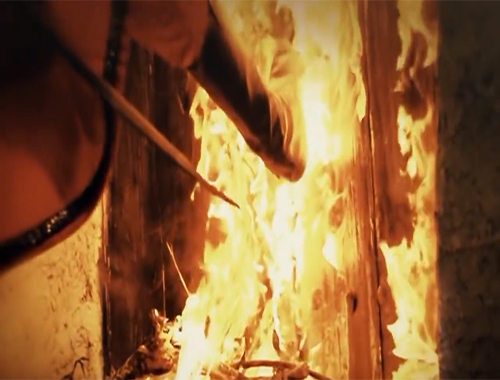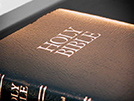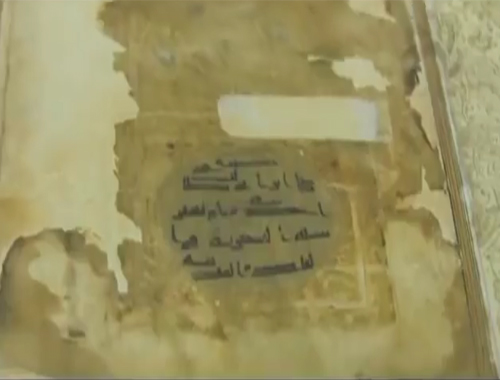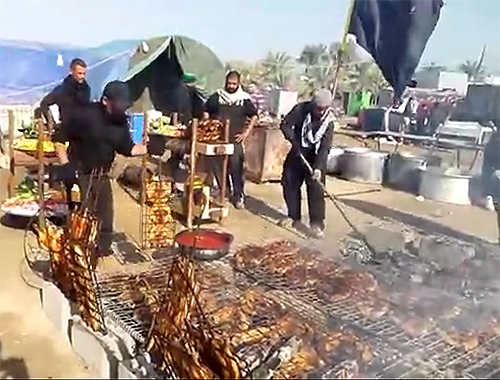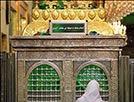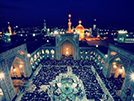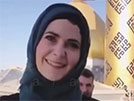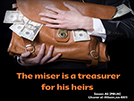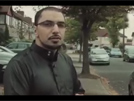Introduction
- Details
- Hits: 2463
In the Name of Allah,the Beneficent,the Merciful
Sura Nasr
(Help)
No. 110 (3 Verses)
Contents of the Sura:
This Sura was revealed at Medina after the migration of the Prophet (p.b.u.h.) from Mecca to Medina. It contains the glad tidings of a great victory for Islam, after which, people, in droves, flocked to the banner of Islam. Then, to thank Allah for that great gift, the holy Prophet (p.b.u.h.) is invited to 'glorify' and 'praise' Allah, and to pray for His 'forgiveness'.
There were many victories for Islam, but no triumph was as important as the bloodless conquest of Mecca, especially the Arabs believed, according to some narrations, that if the Prophet of Islam (p.b.u.h.) could conquer and capture Mecca, then, it was a sign of his legitimacy because if he were not right, Allah would not let him do so, as He did not allow Abrahah and his great force to destroy the Ka'ba. It was for this reason that the Arab pagans entered Islam, in groups, after the conquest of Mecca.
Some have said that this Sura was revealed alongside the 'Hadibiyyah Peace'; six years after migration and two years before the conquest of Mecca.
But, it is completely improbable to say. (as some have said), that it was revealed at the time of the farewell Pilgrimage after the conquest of Mecca, in the year 10 A.H. because, the ideas involved in the Sura, which inform of the incidents regarding the future, not the past, do not fit with this meaning.
One of the names of this Sura is /taudi'/ 'leave-taking', because it implicitly implicates the death of the Prophet (p.b.u.h.).
A tradition indicates that when this Sura was revealed and the holy Prophet (p.b.u.h.) recited it to the followers, they all became happy, but Abbas, the uncle of the holy Prophet (p.b.u.h.), began shedding tears. The holy Prophet (p.b.u.h.) asked him why he was crying. He answered that he supposed the Sura contained the implication of the Prophet's death. And he (p.b.u.h.) said: "It is so, my uncle". (1)
The commentators are divided on how this meaning is understood, from the Sura, when there is nothing apparent in it to imply the idea. The Sura is wholly about the victory, and it seems that the Prophetic mission of the holy Prophet (p.b.u.h.) is completely fulfilled and his religion is fixed. It is clear that in such a case the departure of the Prophet (p.b.u.h.) from this fleeting world to the next, eternal world, is completely predictable.
The Virtue of Studying this Sura:
A tradition from the holy Prophet (p.b.u.h.) says: "He who recites it (Sura Nasr), it is the same as if he had been with the Messenger of Allah (p.b.u.h.) at the conquest of Mecca". (2)
Another tradition from Imam Sadiq (p.b.u.h.) says: "He who recites Sura Nasr in his optional (3) ناÙله)) or obligatory prayers, Allah makes him successful in defeating his enemies, totally, and on the Day of Judgement he will come with a letter which talks. Verily Allah has brought him out of his grave with that letter as an immunity from the heat and fire of HelL..." (4)
It is clear that this virtue and honour is for the person who, with reciting it, follows the way of the Messenger of Allah (p.b.u.h.) and practices his religion and his tradition, not only suffices its recitation with the tongue.
(1) Majma'-al-Bayan, vol. 10, p. 554. (also see Al-Mizan, vol. 20, p. 532.)
(2) Majma'-al-Bayan, vol. 10, p. 553.
(3) See footnote 1 in Sura Ma'un, page 249, of this volume.
(4) Majma'-al-Bayan, vol. 10,p. 553.

